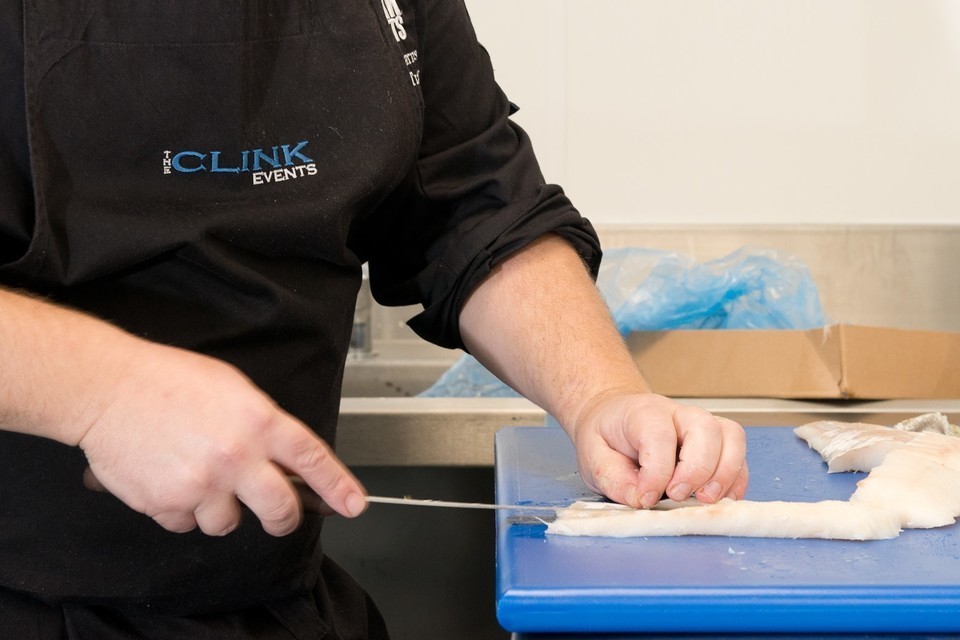Institute of Hospitality welcomes Government’s support for expansion of The Clink Kitchen Programme

The Institute of Hospitality (@IoH_Online), the only international professional body for current and aspiring hospitality leaders and managers, has welcomed the UK Government’s support for the expansion of The Clink Kitchens programme announced last week by Prisons Minister Alex Chalk.
The Institute of Hospitality, through its Professional Development division, has given endorsement recognition to The Clink Charity’s training programmes for front of house and kitchen skills since February 2020.
Robert Richardson FIH, Chief Executive of the Institute of Hospitality, said:
“The Institute of Hospitality applauds the Government’s pledge to expand The Clink Kitchens programme to more than three times its current number of sites by the end of the year. The Institute has supported The Clink Charity since its launch and commends their hospitality training programmes for the quality of their content and delivery and for the valuable contribution that this training provides to the graduates as they embark on the next stage of their lives.
“The expansion says a lot for the success of The Clink Charity’s training programmes that now more ex-offenders will have the opportunity to acquire the skills and qualifications in a real-life working environment. Moreover, the Institute of Hospitality strongly promotes inclusivity and diversity, and we look forward to continuing to welcome graduates of The Clink into our hospitality family.”
By the end of 2021, as many as twenty-five prisons will be working in partnership with The Clink Kitchens Integrated Training Programme which has been developed based on the learnings from The Clink Restaurants and The Clink Gardens training programmes. Under the leadership of Chief Executive Christopher Moore FIH, the scheme includes four restaurants, three gardens and one event catering business as well as Clink Kitchens, which all follow the City & Guilds National Vocational Qualifications curriculum.
Over the past eleven years, it has helped more than 2,500 ex-offenders to reintegrate into society, improving their life chances by equipping them with valuable front of house and kitchen skills and the corresponding qualifications. On account of the programme, the Justice Data Lab states that a Clink Graduate is 65.6% less likely to reoffend, having trained at The Clink while inside prison, and supported into accommodation and full-time employment upon release.
Cyrus Todiwala OBE DL FIH, a Fellow of the Institute of Hospitality who is also the group chef ambassador of The Clink Charity added,
“The Clink Charity has done a stunning job to secure the fulsome backing of Her Majesty’s Prison Service to the expansion of The Clink Kitchens programme across England and Wales. This is great news for the hospitality industry. By continuing to subject their training programmes to the Institute of Hospitality’s rigorous standards, The Clink is ensuring that students receive the quality preparation they need and deserve to be able to find suitable employment in an industry crying out for talent. This is a situation where everybody stands to gain.”
Expansion of Clink Kitchens Scheme to help thousands of offenders find jobs and turn their backs on crime

20th Aug 2021: Thousands of offenders will be steered away from a life of crime thanks to the roll-out of The Clink training kitchen scheme to 25 jails by the end of the year, Prisons Minister Alex Chalk has announced.
? Expanding to 70 prisons in the next 3 years, @TheClinkCharity‘s catering training scheme will help offenders gain @CityandGuilds qualifications so they can find employment on release, which will in turn reduce reoffending by almost 32%.
Find out more: https://t.co/TgfBcclnkC pic.twitter.com/xZHoB47s8m
— Ministry of Justice (@MoJGovUK) August 20, 2021
The scheme is being funded entirely by The Clink Charity through generous donations from philanthropic individuals and grant maintaining trusts.
Already running at eight prisons including HMPs Bristol, Downview, and Styal, the programme sees prisoners train in professionally-run prison kitchens for up to 35 hours a week – preparing and cooking thousands of meals daily – while simultaneously working towards professional qualifications which will help them find employment on the outside.
The Clink has already helped over 2,500 offenders into stable and secure jobs since launching just over a decade ago through their training initiatives, with the expansion announced today expected to support a further 2,000 prisoners into employment.
In 2019 alone, The Clink trained up over 440 prisoners – a total of 330,000 training hours – with over 280 employers across the country taking on Clink graduates upon release from prison.
Research shows that ex-offenders in work are more likely to turn their backs on crime for good, with prisoners who have taken part in The Clink’s training scheme almost a third less likely to go on to commit further offences – reducing the £18 billion a year cost of reoffending and keeping communities safe.
Prisons Minister, Alex Chalk, said:
Prisoners with a job on release are far less likely to reoffend – meaning if we can provide the path to employment, we can make our communities safer.
As we continue to build back safer from the pandemic, it is absolutely vital that we continue to address the root causes of crime by supporting offenders to turn their lives around – and this scheme will do precisely that for thousands of ex-prisoners.
The Clink Chief Executive, Christopher Moore, said:
The roll-out of The Clink Kitchens project over the next three years to 70 prisons in England and Wales, will enable us to continue to repair society and support the hospitality industry that has a major skills shortage.
Social mobility is at the heart of many companies’ recruitment agenda and employing a highly trained Clink graduate not only is a benefit to their business but increases the diversity of their workforce.
The partnership with The Clink Charity is one of many government schemes aimed at supporting offenders into employment with the ultimate aim of cutting crime. Other initiatives include work placements for dozens of offenders during the construction of HMP Five Wells (Northamptonshire) and the new prison in Glen Parva (Leicestershire).
Boosting access to work and safe accommodation for prison leavers will also help build back safer communities by cutting crime and reducing reoffending.
The 19 prisons anticipated to be operational by the end of the summer are: HMPs Bristol, Brixton, Bronzefield, Bullingdon, Channings Wood, Dartmoor, Downview, Eastwood Park, Erlestoke, Exeter, Forest Bank, Guys Marsh, High Down, Highpoint, Hollesley Bay, Leeds, Lewes, Liverpool, Low Newton, Moorland, New Hall, Northumberland, Peterborough, Preston, Styal, and Wealstun.
Justice Data Lab figures show the rate of reoffending for prisoners who participated in the scheme was 15%, compared to 22% for those who did not. This is a difference of 32%.
Over the next 3 years the New Futures Network, a specialist part of HMPPS which works to create employment opportunities for serving prisoners and prison leavers, will support The Clink Charity to deliver their sector-led training programme.











Responses